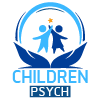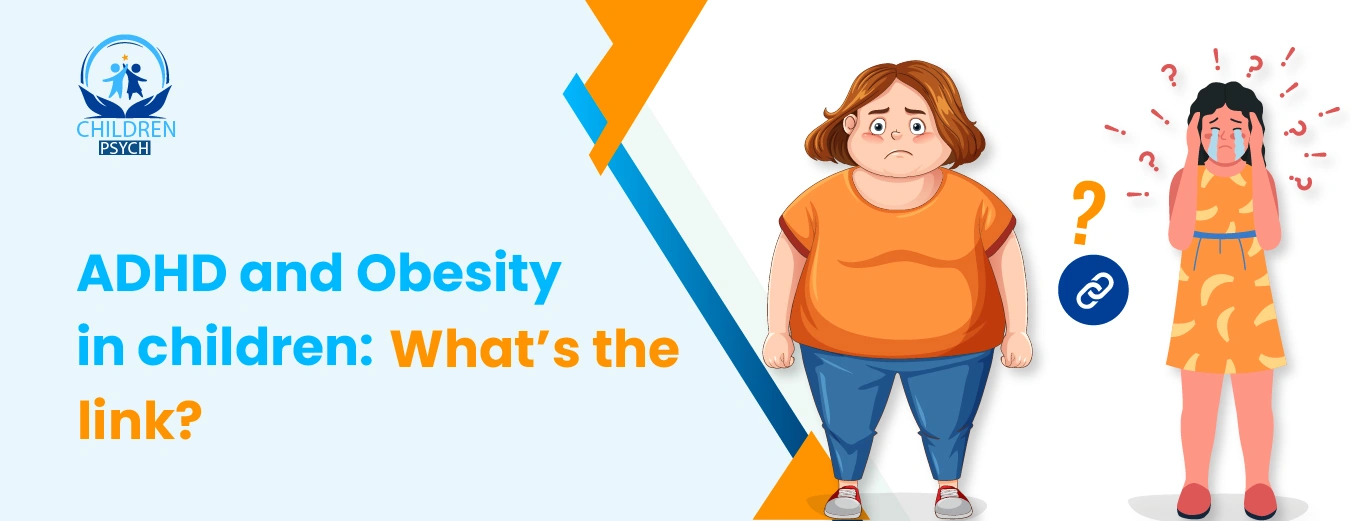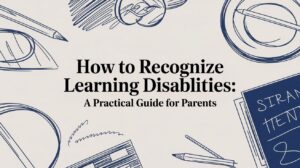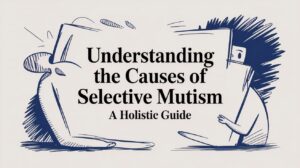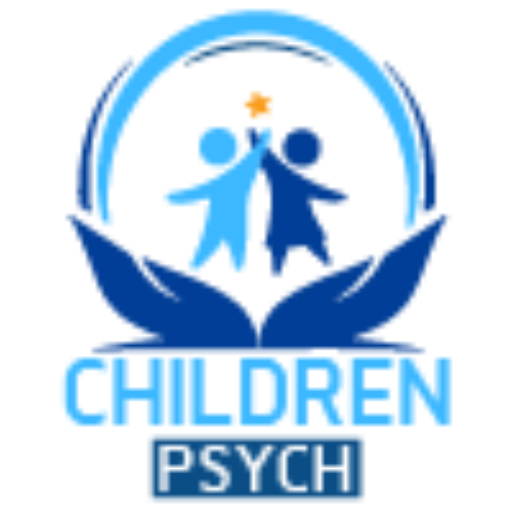‘’There is a significant correlation between ADHD and obesity in children. Children suffering from ADHD are at more risk of developing obesity. Likewise, obese children are also more susceptible to suffering from ADHD. Their association is influenced by several factors. However, early intervention and treatment can help in managing both these conditions’’.
Is your child facing difficulty in paying attention in the classroom? Is your child’s weight increasing day by day? If yes, then there is a higher possibility that your child is dealing with both ADHD and obesity. Various recent studies have reported a correlation between ADHD and obesity in children due to several genetic, environmental, and other related factors.
If you want to know more about the ‘’link between ADHD and obesity in children’’ then this article is the best guide for you. You will get detailed information on which factors make a connection between these two conditions and the ways to manage them.
Major Link between ADHD and Obesity in Children
There is a strong connection between ADHD and obesity in children. The relationship between these two conditions is bidirectional. Various recent studies have reported the fact that in children, ADHD is a major risk factor that can contribute to the development of obesity in children. However, another major fact is that obesity does not directly cause the development of ADHD in children, but its presence might increase the risk of ADHD.
There is an increased probability that those children who are victims of ADHD can become obese more as compared to the non-ADHD children. Likewise, in obese children, there might be the occurence of ADHD.
Why is ADHD linked to obesity in children?
The association between ADHD and obesity in children is strongly influenced by several factors, which include:
1. Higher impulsivity
One of the major symptoms of ADHD is increased impulsivity. Therefore, a lack of impulse control can become a contributor to the development of obesity in children, as children face difficulty in finding out which food items should be their ideal choice and how they should regularly follow a physical activity. Both these things directly cause an increase in weight and make the child obese.
2. Executive dysfunctioning
ADHD is directly associated with executive dysfunction. Due to a lack of executive functioning skills, children find it difficult to make specific plans for healthy meals. In addition, they also face issues in managing their time to make a schedule to perform their exercise or any physical activity. Due to the absence of any physical activity, their body weight increases, and they are categorized in the list of obese children.
Side Effects of Medications
1. Stimulants & weight gain
Stimulants are the specialized medications that are used to manage the symptoms of ADHD. Initially, these medications caused weight loss, but if used for long-term without any expert recommendation, then they can result in major negative consequences.
Multiple studies have reported weight gain in individuals after long-term use of stimulants or their withdrawal.
2. Other medications
Not only can stimulants cause weight gain, but some other medications can also cause weight gain, such as:
- Antipsychotics
- Antidepressants
If you are taking these medications without seeking any professional guidance, then there is a greater possibility that you will have to face side effects such as weight gain.
3. Genetic overlap
The genetic link between ADHD and obesity in children is also reported by multiple studies. There is a genetic predisposition that results in the development of both conditions. Moreover, there are also some shared genetic pathways and genetic variations that result in a higher chance of susceptibility to both conditions in children.
4. Physical inactivation
Physical activity can significantly help in reducing the frequency and intensity of ADHD symptoms in children. However, children suffering from ADHD are physically less active as compared to other children. Therefore, there are higher chances that their bad eating habits can make them obese and lead to a severe increase in the severity of ADHD symptoms.
5. Disturbed sleep-wake cycle
Due to ADHD, children do not get sufficient sleep and feel dizzy and less energetic throughout the day. Different researchers have also reported this fact that the children who do not get enough good quality sleep get easily involved in bad eating habits and are more likely to get obese, as compared to those children whose sleep-wake cycle is balanced.
6. Negative lifestyle
ADHD children are unable to maintain a healthy routine. They do not focus on what they are eating, getting good quality sleep, or not. Likewise, they also avoid mobility in their daily life routine. All these negative factors of their daily life contribute to the development of obesity in children.
7. Brain chemistry
Brain chemistry also explains the correlation between ADHD and obesity in children. A certain imbalance in the level of neurotransmitters, which include GABA and dopamine, also has a major negative effect on impulse control. Due to this, children get indulged in impulsive eating patterns and are directed on the way to obesity.
8. Poor interoceptive awareness
Interoceptive awareness is the ability to understand all the internal signals or sensations in the body. A sense of hunger and thirst is one of the major signals that humans detect and respond to. However, children with ADHD have poor interoceptive awareness as compared to non-ADHD children. They do not pay attention to their internal signals of thirst and hunger. In addition, they do not easily find out that their body needs physical activity. This lack of clarity regarding their internal needs can result in poor eating habits and ultimately obesity.
9. Procrastin-eating
Eating unhealthy is also a form of procrastination. ADHD minds consider most of the tasks boring and therefore try to do those things that are less important. Instead of being productive, they prefer to have a delicious pizza for their meal. In addition, snacking becomes their uncontrollable habit, which in turn makes them more obese.
10. Maternal obesity
If the mother, during pregnancy, is dealing with obesity, then there are higher chances that the child after birth will also experience both ADHD and weight gain issues.
What are the major ways of managing obesity and ADHD in children?
The following are the main ways that help in managing ADHD and obesity in children.
1. Act as your child’s binocular
Children and kids can not judge or understand how their negative actions today shape their future. Therefore, parents should become their binoculars and help them to develop a better understanding of everything. Therefore, get some time from your busy schedule, sit with your children, discuss their life routine, ask them about their future goals, and guide them to make good food choices to prevent obesity and other linked issues.
Moreover, also guide them to focus on their actions or behavior. Teach them ways that they can use to improve their attention and other abilities that are affected by ADHD.
2. Positive lifestyle changes
If your child adopts some healthy and positive changes in their lifestyle, then there is a greater possibility that he or she will experience the lesser issues of weight fluctuation. The following factors can protect your child from both ADHD and obesity.
- Healthy diet
- Balanced sleep cycle
- Regular physical activity
3. Avoiding bad eating habits
Keep an eye on the eating habits of your children to prevent bad or poor eating habits. If your child is habituated to eating or snacking late at night, then guide them as they are not useful for their health. In addition, you can also give them some healthier alternatives so their health is never affected.
4. Motivate them
Do not force your child to work on new strategies to manage obesity and ADHD. Instead of this, show your encouraging behavior towards them. Motivate them to follow those strategies that contribute to getting rid of obesity and ADHD.
5. Be a role model for your child
Children always try to mimic everything that their parents do. Therefore, as a parent, you should be careful while doing everything, as you are setting an example for your child. Make good food choices and try to pay attention to your eating patterns and habits. When you are eating, avoid all the distractions. In addition, make a habit of regularly performing any physical activity to stay physically and mentally active.
6. Avoid using the word diet
If you want your child to adopt good eating habits, then in that case, you should avoid using the word diet. As most people make the negative connection of the word diet with deprivation, therefore, teach your child to make a positive relationship with food and enjoy a quality life.
7. Avoid the micromanagement
Parents should consider everything regarding their home and children. They should remain mindful of what is coming to their home, including food items or any other related things. Their focus is to develop a positive and healthy environment to protect their child from both ADHD and obesity.
8. ADHD medications
ADHD medications help children control their executive functions. They feel at ease in both controlling their negative behavior and impulsive eating. In addition, they also feel at ease in making better plans to manage their time and also daily routine.
Seek professional help
If you think that your child’s ADHD or weight gain is not under control, then seek help from professional experts. They will first identify the symptoms and their severity, and any underlying factors that might cause the weight gain in ADHD or some major symptoms of ADHD in obese children.
Bottom line
A child can have both ADHD and obesity together as a co-occurring condition. A child with ADHD symptoms can suffer from obesity, and the rate is higher compared to other children. Likewise, obese children are also more susceptible to suffering from ADHD. There are some overlapping genetic factors, changes in neurotransmitters, or brain chemistry that contribute to the development of both ADHD and obesity. However, with some useful strategies, children can remain secure or manage both conditions. In case of severity, consulting a professional is a good option.
Nurture your child’s mental health with professional support for Children. Psych
If you are concerned with your child’s mental health, then the first main thing that you should do is to immediately consult a professional. Multiple platforms offer psychiatric services for children. But among the Children Psych is leading.
At Children Psych, you can get reliable psychiatric or mental health services for your children and adolescents. We have a skilled team of child psychiatric nurse practitioners who are experienced in developing personalized treatment plans that cater to the mental health requirements of each suffering child or adolescent.
Whether your child is battling with ADHD or any other mental issue, we are here to help. Whatever your child’s issue, you can get the best mental health solutions. Moreover, our experts also offer the best support and guidance on how children can overcome their mental issues and live a happier life with their transformed mental health.
Related Article: Top 20 Therapy Icebreakers and Activities for Children
So what are you waiting for? Book an appointment with our experts to find the tailored psychiatric solutions for your child.

Frequently Asked Questions
Can children with ADHD become obese?
Yes, children suffering from ADHD are more likely to experience weight gain compared to normal children.
What is the peak age of ADHD in children?
At the seven or eight year age, ADHD symptoms acquire severity. However, after this age, the decline in symptoms becomes obvious.
Is ADHD a form of autism?
No, ADHD is not a form of autism. Both ADHD and autism are different neurodevelopmental conditions.
Is there a connection between childhood obesity and untreated ADHD?
Yes, there is a strong correlation between obesity and ADHD in children.
Do children engage in excessive eating?
Yes, Children with ADHD display more binge eating patterns.
